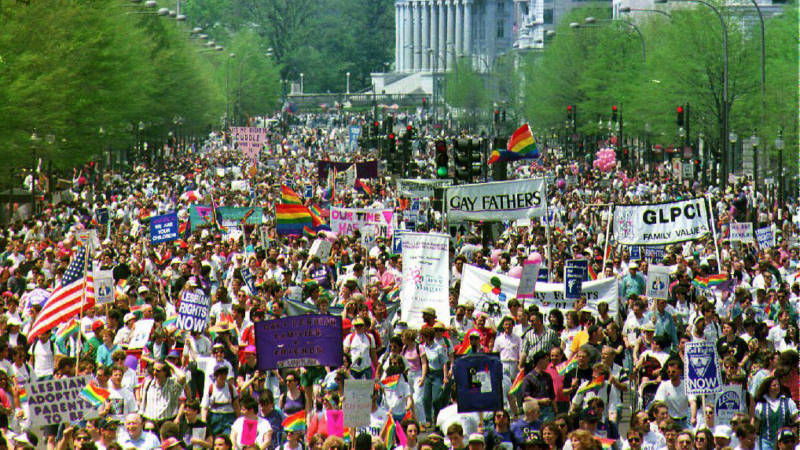The annual Pride celebration is one of San Francisco’s most popular festivities, drawing out hundreds of thousands of LGBTQ+ people, straight allies and visitors from all over the world. But before Pride became a mainstream institution endorsed by city officials, local police and corporations like Google and Facebook, it was a revolt.
Fifty years ago, on June 28, 1969, queer and trans patrons at New York’s Stonewall Inn, led by trans women of color, rioted against police harassment. The chaos continued for three days, tearing up the Greenwich Village block in defiance of restrictive anti-LGBTQ+ laws and police brutality. Radical organizations sprung from the uprising: Street Transvestite Action Revolutionaries (STAR), led by Marsha P. Johnson and Sylvia Rivera, fought for the rights of trans women and gender-nonconforming people who routinely faced harassment and discrimination. The Gay Liberation Front (GLF) attempted to unite the gay rights movement with anti-capitalist, anti-war movements of the time.


